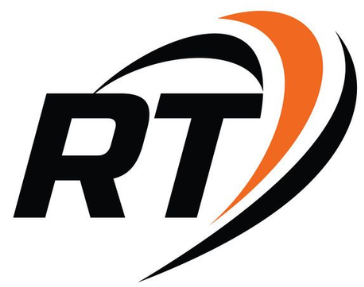In today’s fast-paced and ever-changing world, success is no longer solely dependent on technical skills or knowledge. Instead, it is the ability to navigate through complex environments and make sound decisions that sets individuals and organizations apart. This is where acumen comes into play. Acumen, defined as “the ability to make good judgments and quick decisions,” is a crucial skill for leaders and professionals to possess in order to thrive in today’s competitive landscape.
Acumen goes beyond intelligence or expertise in a specific field. It encompasses a combination of critical thinking, emotional intelligence, and strategic decision-making. In this blog post, we will explore the concept of acumen and its importance in various aspects of personal and professional development. We will also discuss strategies for developing and cultivating acumen, as well as its role in leadership and organizational success.
Developing Acumen: Strategies for Leaders and Professionals
Acumen is not something that can be acquired overnight. It requires continuous learning, self-reflection, and practice. Here are some strategies that can help individuals develop their acumen:
Continuous Learning
The first step towards developing acumen is to have a thirst for knowledge and a willingness to learn. This involves staying updated with the latest trends and developments in your field, as well as seeking out new perspectives and ideas from different sources. This could include attending conferences, workshops, or webinars, reading books and articles, or networking with other professionals in your industry.
Critical Thinking
Critical thinking is an essential component of acumen. It involves analyzing information objectively, questioning assumptions, and evaluating evidence to make informed decisions. To improve critical thinking skills, individuals can practice techniques such as brainstorming, mind mapping, and SWOT analysis. They can also seek feedback from others and challenge their own thought processes.
Emotional Intelligence
Emotional intelligence, or the ability to understand and manage one’s own emotions and those of others, is another crucial aspect of acumen. It allows individuals to navigate through complex interpersonal relationships and make decisions that take into account the needs and feelings of others. To develop emotional intelligence, individuals can practice self-awareness, empathy, and effective communication.
Acumen in Decision-Making: How to Make Better Choices
In today’s fast-paced business world, decision-making is a critical skill for leaders and professionals. However, making sound decisions in complex environments can be challenging. This is where acumen plays a crucial role. Here are some ways in which acumen can help individuals make better choices:
Understanding the Big Picture
Acumen involves having a holistic view of a situation and understanding how different factors interconnect. This allows individuals to see the bigger picture and make decisions that align with the overall goals and objectives of their organization. It also helps them anticipate potential consequences and make more informed choices.
Considering Multiple Perspectives
Acumen also involves considering multiple perspectives and taking into account diverse viewpoints. This allows individuals to make well-rounded decisions that consider the needs and opinions of all stakeholders. It also helps in identifying potential blind spots and finding creative solutions to complex problems.
Evaluating Risks and Opportunities
In today’s dynamic business environment, risks and opportunities are constantly emerging. Acumen enables individuals to assess these risks and opportunities objectively and make calculated decisions. It also helps in identifying potential roadblocks and developing contingency plans to mitigate risks.
The Importance of Acumen in Problem-Solving
Problem-solving is an essential skill for success in any field. Acumen plays a crucial role in this process by providing individuals with the necessary tools and mindset to tackle complex problems effectively. Here are some ways in which acumen contributes to problem-solving:
Identifying Root Causes
Acumen involves digging deeper into a problem to identify its root causes. This allows individuals to address the underlying issues rather than just treating the symptoms. It also helps in finding long-term solutions that prevent the problem from recurring.
Thinking Outside the Box
Acumen encourages individuals to think creatively and come up with innovative solutions to problems. This involves challenging conventional thinking and exploring new ideas and approaches. It also allows individuals to see problems from different angles and find unique solutions.
Making Data-Driven Decisions
Acumen involves using data and evidence to make decisions rather than relying on intuition or assumptions. This ensures that decisions are based on facts and not just opinions. It also helps in identifying patterns and trends that can provide valuable insights into solving complex problems.
Cultivating Acumen: Building a Mindset for Success
While some individuals may naturally possess acumen, it is a skill that can be developed and cultivated over time. Here are some ways in which individuals can build a mindset for success and cultivate their acumen:
Embracing Continuous Learning
As mentioned earlier, continuous learning is crucial for developing acumen. Individuals should have a growth mindset and be open to learning new things and expanding their knowledge and skills. This could involve taking on new challenges, seeking out feedback, and being curious about different perspectives.
Practicing Self-Reflection
Self-reflection is an essential aspect of personal and professional development. It allows individuals to assess their strengths and weaknesses, identify areas for improvement, and set goals for themselves. Regular self-reflection can help individuals become more self-aware and make better decisions.
Seeking Diverse Experiences
Exposure to diverse experiences can broaden an individual’s perspective and help them develop their acumen. This could include working in different industries, taking on new roles and responsibilities, or even traveling to different countries. These experiences can provide individuals with new insights and help them develop a more well-rounded approach to problem-solving.
Acumen in Communication: Effectively Conveying Ideas and Information
Effective communication is a crucial skill for success in any field. Acumen plays a significant role in this process by helping individuals convey their ideas and information in a clear, concise, and impactful manner. Here are some ways in which acumen can improve communication skills:
Understanding the Audience
Acumen involves understanding the needs and preferences of different audiences. This allows individuals to tailor their communication style and message accordingly. It also helps in building rapport and establishing trust with others.
Using Different Communication Styles
Acumen enables individuals to adapt their communication style to different situations and personalities. This could involve using different mediums such as written, verbal, or visual communication, as well as adjusting the tone and language used. This ensures that the message is effectively conveyed and understood by all parties involved.
Active Listening
Active listening is an essential aspect of effective communication. It involves paying attention to what others are saying, asking clarifying questions, and providing feedback. Acumen helps individuals become better listeners, which can lead to more meaningful and productive conversations.
Acumen in Negotiations: Achieving Win-Win Outcomes
Negotiation skills are crucial for success in both personal and professional settings. Acumen plays a vital role in negotiations by enabling individuals to find mutually beneficial solutions and achieve win-win outcomes. Here are some ways in which acumen can improve negotiation skills:
Identifying Interests and Priorities
Acumen involves understanding the interests and priorities of all parties involved in a negotiation. This allows individuals to find common ground and identify potential trade-offs that can lead to a win-win outcome. It also helps in avoiding conflicts and building stronger relationships.
Building Trust and Rapport
Trust and rapport are essential elements of successful negotiations. Acumen enables individuals to build trust by being transparent, empathetic, and respectful towards others. This creates a positive environment for negotiations and increases the chances of reaching a mutually beneficial agreement.
Finding Creative Solutions
Acumen encourages individuals to think outside the box and find creative solutions to complex problems. This can be especially helpful in negotiations where finding a compromise may seem challenging. By exploring different options and considering multiple perspectives, individuals can come up with innovative solutions that benefit all parties involved.
The Role of Acumen in Strategic Planning
Strategic planning is crucial for organizations to achieve their long-term goals and objectives. Acumen plays a significant role in this process by providing leaders with the necessary skills and mindset to develop effective strategies. Here are some ways in which acumen contributes to strategic planning:
Analyzing Market Trends
Acumen involves staying updated with market trends and understanding how they may impact an organization’s future. This allows leaders to anticipate potential challenges and opportunities and develop strategies that align with the changing landscape.
Identifying Strengths and Weaknesses
Acumen enables leaders to assess their organization’s strengths and weaknesses objectively. This helps in identifying areas for improvement and developing strategies that capitalize on the organization’s strengths. It also allows leaders to anticipate potential threats and develop contingency plans.
Setting Realistic Goals
Acumen involves setting realistic and achievable goals for an organization. This requires a thorough understanding of the organization’s capabilities and resources, as well as the external factors that may impact its success. By setting realistic goals, leaders can ensure that their strategies are feasible and can be effectively implemented.
Building an Acumen-Driven Organization: Strategies for Leaders
For an organization to be successful, it is not enough for just its leaders to possess acumen. It is essential for the entire organization to have an acumen-driven mindset. Here are some strategies that leaders can use to build an acumen-driven organization:
Encouraging Continuous Learning
Leaders should foster a culture of continuous learning within their organization. This could involve providing employees with opportunities for training and development, encouraging them to seek out new experiences, and recognizing and rewarding their efforts to learn and grow.
Promoting Critical Thinking
Leaders should encourage critical thinking among their employees by providing them with the necessary tools and resources. This could include training programs, workshops, or even assigning team projects that require individuals to think critically and come up with innovative solutions.
Embracing Diversity and Inclusion
Diversity and inclusion are crucial for an organization to thrive. Leaders should promote a diverse and inclusive workplace where individuals from different backgrounds and perspectives can come together and contribute to the organization’s success. This can lead to more well-rounded decision-making and better problem-solving.
Acumen in Leadership: Inspiring and Empowering Others
Acumen is a vital skill for leaders to possess as it enables them to inspire and empower others to achieve their full potential. Here are some ways in which acumen contributes to effective leadership:
Leading by Example
Acumen involves leading by example and setting a positive tone for others to follow. This could involve demonstrating critical thinking skills, emotional intelligence, and effective communication in one’s own actions and decisions. This inspires others to do the same and creates a culture of continuous improvement.
Building Strong Relationships
Acumen enables leaders to build strong relationships with their team members and other stakeholders. This involves understanding their needs and concerns, communicating effectively, and showing empathy and respect towards others. These relationships can foster trust and collaboration, leading to better outcomes for the organization.
Empowering Others
Acumen also involves empowering others to take on new challenges and make decisions. This could involve delegating responsibilities, providing opportunities for growth and development, and trusting others to make decisions. By empowering others, leaders can create a sense of ownership and accountability within their team.
Conclusion
In today’s complex and fast-changing world, acumen is a crucial skill for success. It goes beyond intelligence or expertise and encompasses a combination of critical thinking, emotional intelligence, and strategic decision-making. Acumen is essential in various aspects of personal and professional development, including decision-making, problem-solving, communication, and negotiations. It also plays a significant role in leadership and organizational success. By continuously learning, practicing critical thinking and emotional intelligence, and embracing diverse experiences, individuals can develop and cultivate their acumen. Leaders can also play a crucial role in building an acumen-driven organization by promoting continuous learning, critical thinking, and diversity and inclusion. With the right mindset and skills, individuals and organizations can thrive in today’s complex environments and achieve their goals and objectives.

